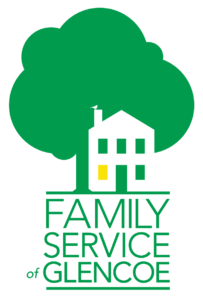National Social Work Month 2025
March is National Social Work Month, and FSG is proud to have 6 social workers on its clinical staff as well as a social work student intern, all of whom bring their unique experiences and expertise to support the needs of everyone from children to senior adults. Our community is stronger because of them and the work they do.
Social workers are found in every facet of community life, including schools, hospitals, mental health clinics, senior centers, elected office, private practices, prisons, military, corporations, and in numerous public and private agencies. Here in our community, social workers at FSG have been instrumental in providing mental health counseling for those struggling with parenting issues, trauma, child anxiety, aging with strength and dignity, and coaching and support through marital conflict and divorce, among many other challenges. We’ve also been on the forefront of pressing issues facing our community, including providing services and affordable housing support to our aging population, treating people affected by gun violence and other traumas, and 24/7 crisis response with Glencoe Public Safety.
Our 6 social workers at FSG, along with our social work student intern, have each carved their own niche in our community, imparting their wisdom and expertise to help advance care, programming, and resources to a wide spectrum of people.
Tara Bagnola, LCSW, joined us in 2022 as a staff therapist, bringing to FSG her background in gender and women’s studies and has also led the charge to train members of our community who work with children in Youth Mental Health First Aid, a certification program that trains adults in identifying challenges and helping children in crisis and non-crisis situations. If you’re a parent of a high school, you may also have been guided by her advice in one of our Parent Discussion Groups, open to anyone from any school district/community.
Jadyn Denlow, Social Work Intern, joins us from the Crown Family School of Social Work, Policy, and Practice at the University of Chicago, where she is a first-year student. Jadyn is a May 2024 graduate of the University of Michigan with a Bachelor of Arts in Psychology within the School of Literature, Science, and the Arts with a Minor in Community Action and Social Change within the School of Social Work. An Evanston native, Jadyn is excited to dig deeper into the community, learning how important FSG’s outreach and mental health support is to strengthen the overall health of the community. Jadyn has a wide breadth of experiences to share with FSG, and we look forward to her contributions!
Brian McHugh, LSW, has worked on the FSG crisis team since joining the staff in 2009. He is on-call for Glencoe Public Safety, responding as needed to families in crisis. His calm and trustworthy disposition comforts everyone with whom he interacts, and his leadership and innovation with crisis calls partnered with local police has been publicized in the media for its forward-thinking, holistic approach.
Joan Merlo, LCSW, one of our longest tenured staff therapists, brings her warmth and optimism to everything she does. She hosts the monthly Vibrant Living Senior Discussion Group and finds great satisfaction in her counseling practice when partnering with female clients to facilitate their growth in self-awareness, self-understanding, and self-empathy.
Emily Mysel, LCSW, is FSG’s Senior Program Manager. In this role, Emily educates clients and their families on the complexities of Alzheimer’s Disease and Related Dementia and provides support and referrals throughout their aging journey. Emily has vast experience in bereavement and end of life support, community outreach, facilitating support groups and, notably, spearheaded the efforts to make Glencoe a dementia-friendly community. She also partners with Glencoe Public Safety to provide 24/7 crisis response, a program that is unique and invaluable to Glencoe residents.
Alex Ochoa, LCSW, serves as FSG’s Outreach & Intake Manager and is a staff therapist. Glencoe and neighboring communities’ residents have deeply benefitted from her pediatric-focused play-based therapy as well and bilingual Spanish services since she began with FSG in July 2022. She has helped expand our counseling offerings, as we can now reach even more people in need, serving previously underserved populations. She is the calm and compassionate voice who will greet you upon intake and help guide you through our service offerings.
Tami Sollo, LCSW, FSG’s Clinical Director, brings over 20 years of clinical experience to FSG, joining us in 2023. Tami specializes in couples’ therapy, discernment counseling, and issues of divorce, along with counseling adults of all ages with a variety of presenting challenges. Her vast and deep experience as a therapist and relational approach to her work will help clients learn how their previous relationships have created and affected current relationships.
Please join us in thanking these remarkable Social Workers for their contributions to FSG, our communities, and the field of Social Work!
